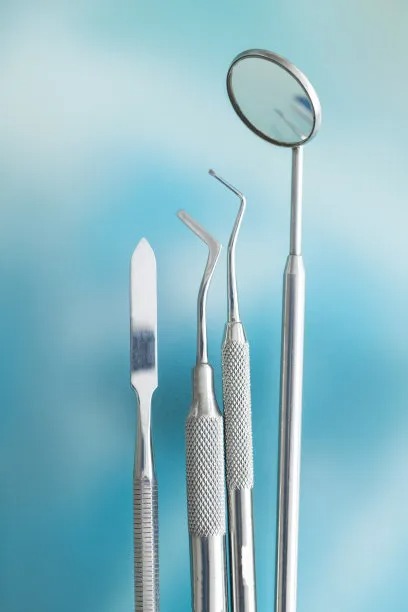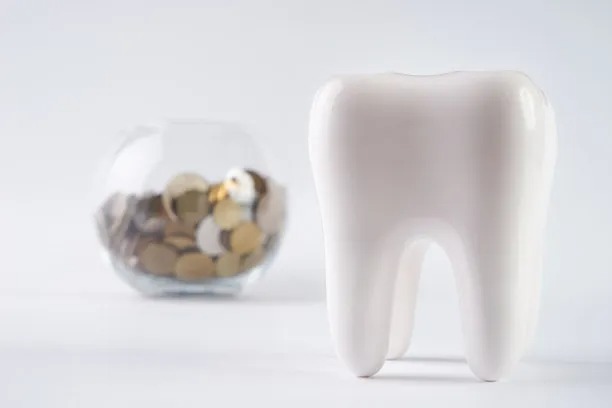Summary: Dental implant procedures are transformative in restoring the functionality and aesthetics of one’s smile. This article presents essential guidelines and precautions for both the procedure and the recovery process. Carefully considering factors such as consultation and treatment planning, surgical methods, post-operative care, and lifestyle adjustments can significantly improve outcomes. Following these guidelines will help ensure a successful dental implant experience, leading to enhanced satisfaction and long-term success.
1. Importance of Proper Consultation and Treatment Planning

An initial consultation with a qualified dental professional is crucial for a successful dental implant procedure. During this stage, a comprehensive evaluation is conducted, including a detailed medical history and diagnostic imaging like X-rays or 3D scans. These assessments help determine if you are a suitable candidate for implants, considering factors such as bone density and overall oral health.
Once an assessment is completed, detailed treatment planning is the next step. This planning phase involves outlining the entire procedure, including timelines, costs, and the required number of appointments. A well-structured plan provides clarity and sets realistic expectations, allowing patients to prepare mentally and logistically for the procedure.
Communication with your dentist about your concerns and expectations is vital during the consultation process. Effective dialogue establishes a trusting relationship, enabling the dental professional to tailor the treatment plan according to your specific needs. Misunderstandings can lead to complications, making this step exceedingly important for a seamless experience.
2. Understanding the Surgical Procedure
The dental implant surgery involves multiple stages and requires careful precision. Essentially, titanium implants are surgically embedded into the jawbone, acting as artificial tooth roots. Anesthesia is usually administered to ensure that the procedure is painless. Patients should discuss anesthesia options with their dentist to alleviate any anxiety regarding the surgery.
Following the embedding of the implant, a healing period is necessary, usually ranging from three to six months. During this time, osseointegration occurs, where the jawbone grows around the implant, securing it firmly in place. Understanding this phase helps patients set appropriate recovery timelines and reduces the temptation to engage in strenuous activities prematurely.
3. Importance of Post-operative Care
Post-operative care is just as important as the procedure itself for achieving successful results. Immediately after the surgery, managing pain and swelling is essential. Over-the-counter pain relievers or prescribed medications can help ease discomfort. Additionally, applying ice packs in moderation can effectively reduce swelling.
During the recovery phase, it is essential to follow the dentist’s instructions regarding oral hygiene. Patients may be advised to avoid certain brushing techniques around the implant site for a few weeks. Maintaining cleanliness through gentle rinsing with a prescribed mouthwash can aid healing without disturbing the surgical area.
A dietary change may also be necessary in the post-operative phase. Soft foods should be prioritized while avoiding hard or chewy items that could damage the implant site. Staying hydrated is equally important, but it should be done with caution, considering temperature preferences; lukewarm liquids are advised to prevent discomfort.
4. Lifestyle Adjustments for Successful Healing
Making specific lifestyle adjustments can significantly influence the success of your dental implant recovery. Firstly, it is critical to refrain from smoking or using tobacco products, as they can impede blood flow and slow down the healing process. Patients should consider quitting or reducing their usage, even temporarily, to ensure better outcomes.
Regular follow-ups with your dentist post-implant surgery are crucial. These appointments will help monitor the healing process and quickly address any concerns that may arise. Sticking to scheduled visits ensures that any potential issues are caught early, preventing further complications.
Lastly, adopting a balanced diet rich in vitamins and minerals supports healing. Foods high in calcium and protein promote bone and tissue health, aiding recovery. Patients are encouraged to consult with their healthcare providers or nutritionists to craft a diet that supports both general health and recovery from the dental implant procedure.
Summary:
The journey to a successful dental implant involves meticulous preparation, surgical precision, diligent post-operative care, and suitable lifestyle adjustments. The guidelines highlighted in this article serve to empower patients with the knowledge needed for a smooth experience and optimal healing.
This article is compiled by Vickong Dental and the content is for reference only.
Vickong Dental
Vickong Dental is a large medical group established in Hong Kong in 2008 by professors from well-known medical universities in Guangdong and Hong Kong, as well as medical doctors from key national '985' universities (including Master's supervisors and senior professors). The chain of branches brings together expert dentists with PhDs and Master's degrees from Hong Kong and Mainland China, committed to providing high-quality dental treatment.
"Vickong Dental Practices the University Motto of 'Healing and Serving Society,' with a Stable Operation for Sixteen Years. It Has Been honored with Hong Kong Enterprise Leaders's Choice,' and is a Global Trusted Implant Center for the Nobel Implant System. Recommended by Hong Kong Metro Broadcast and Guangdong Television, it Serves Customers from Over Thirty Countries and Regions, Gaining the Trust and Favor of Citizens from the Guangdong-Hong Kong-Macau Greater Bay Area and Surrounding Cities.

Thousands of customers' unanimous praise
The most recognized and highly recommended dental service by customers in the Guangdong-Hong Kong-Macau Greater Bay Area
We Ensure You Receive Detailed Care and Attention Here
Hong Kong standards, Shenzhen prices, Your Trusted English-speaking dentists

Vickong Dental Medical-Grade Instrument Disinfection Process
Vickong Dental Medical-Grade Instrument Disinfection Process

Vickong Dental Chain: A Warm and Comfortable Environment for Treatment






Appointment Hours

Q&A
Why choose Vickong Dental?
Vickong Dental practices the university motto 「Medicine to Benefit Society」, with each branch bringing together highly qualified dentists with doctoral and master’s degrees from Hong Kong and the Mainland, and has maintained seventeen years of steady operation。Recipient of 「2024 Hong Kong Enterprise Leaders Brand」, 「2025 Hong Kong Enterprise Leaders Brand」, a Nobel Biocare Global Trusted Implant Center, and a brand recommended by Metro Radio Hong Kong and Guangdong TV。
To date, we have served customers from more than thirty countries and regions,earning exceptionally high word-of-mouth recognition and trusted recommendations from residents across the Guangdong-Hong Kong-Macao Greater Bay Area and surrounding cities
We have eight major branches in Zhuhai、Shenzhen,and a consultation and service assurance center in Hong Kong,so you can book a free consultation at any time for any questions,which is very reassuring.
If I do not accept the quotation after the CT scan, will I be charged??
No! As long as the actual treatment has not started, you will not be charged any fees.
Will there be any additional charges during the treatment process?
No, there won’t be any additional charges. Before treatment begins, we will clearly explain the treatment plan and its corresponding fees. Only after the patient agrees and signs the consent form will we proceed with the dental service.
Can I pay in Hong Kong dollars?
Yes. Vickong Dental accepts payment in Hong Kong dollars. The amount will be converted based on the exchange rate of the day, and the applicable rate will be clearly communicated to you in advance.
Can I reschedule my appointment at any time?
Yes. Please contact us via **WeChat** or **WhatsApp** as early as possible, providing your original appointment time and details, along with your preferred new date and time slot for rescheduling.













